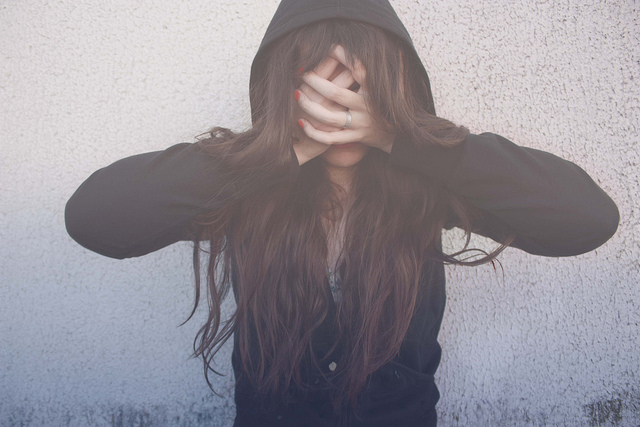
Rebecca
Rebecca is a well liked, intelligent and talented high school student. She has many friends and her teachers admire her kindness and generosity towards her peers. Rebecca has a school presentation coming up, and for the first time ever, she’s thinking of skipping class. While she loves the topic, she’s terrified of speaking in front of others and feels that they will judge her and she be completely humiliated. She’s been worried about it for weeks, and can’t sleep well at night because of her overwhelming stress. Rebecca has also started eating alone at lunch because she’s afraid of people watching her. Her friends have started to notice that she often retreats and doesn’t attend as many social events as she used to.
Michael
Michael is a quiet, soft-spoken young man. He has a few close friends but doesn’t branch out much. Last week, Michael had to give a speech at his brother’s wedding. While he was nervous beforehand, he felt proud of himself for stepping outside of his comfort zone and everyone said he did a great job. Michael prefers quieter activities and has never been one to participate in school sports or crowded extracurriculars. He’s happy and enjoys reading, being outdoors and spending time with his family.
These two stories show the subtle differences between social anxiety and shyness. Rebecca, who is relatively outgoing, feels extreme nervousness and stress in social situations where she has to perform, be in the spotlight or complete tasks in front of others. This is a trait of someone with a social anxiety.
Image Pete
Michael, on the other hand, exhibits a personality trait of shyness. The key difference for him is that while he prefers to be alone or in small groups, he doesn’t feel the extreme negative emotions associated with stepping outside of his social comfort zone.
Sometimes, people with social anxiety don’t seek professional help because they assume they are just extremely shy. However, symptoms of social anxiety, unlike shyness, are part of a mental health condition that can be debilitating and interfere with daily life.
Some other symptoms of social anxiety include:
- Being extremely self-conscious in ordinary social situations
- Worrying intensely for weeks or months before a social situation
- Fear of being judged or watched by others
- Stress about feeling embarrassment or humiliation
- Feeling shortness of breath, faint, flushed or having an upset stomach when feeling nervous
- Actively avoiding social situations that make you nervous
- Staying quiet and in the background in group settings
If you or someone you know exhibits these symptoms, it’s important to seek professional help. Social anxiety is not a personality trait like shyness and can be treated with appropriate support, therapy and by developing positive coping skills.
Featured image Alessandra Celauro



